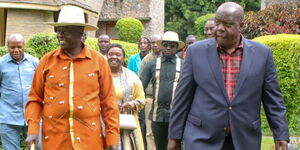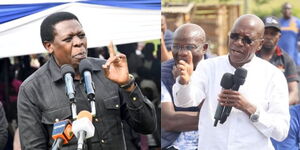Trade Cabinet Secretary Rebeccah Miano has stated that other East African Community states opted against signing the Economic Partnership Agreement (EPA) with the European Union owing to various issues, among them the need for additional time to assess the terms and conditions.
Speaking on Wednesday during an interview on KBC, the CS noted that some countries within the EAC were also not willing to sign at the same time as Kenya.
According to the CS, talks to facilitate the signing of the agreement with EAC countries were made earlier on, nearly a decade ago.
Earlier reports indicated that some EAC countries were not in support of Kenya signing the deal, citing that it would give Kenya an unfair advantage of goods from the region flowing through the country.
Additionally, they also cited that President William Ruto's administration's decision to approve the deal would breach the EAC Customs Union and the Common Market Protocol that promotes the flow of goods between Kenya and other EAC countries.
In her statement, however, CS Miano emphasised that Kenya chose to follow through with the deal after a meeting with the EAC Heads of State. In the meeting, the countries agreed to engage the EU independently rather than as a community.
Other EAC countries, however, may choose to sign the deal at a later time, according to the CS.
"The discussions then were between EU and the whole of East Africa Community, but along the line, some countries may not have been ready to progress to the level of signature and ratification”, the CS told KBC.
Earlier, she had told the East African that, "Yes, they will accede to the current document as individuals or as groups. The document actually anticipates that this will happen and is designed to ease such entry."
Kenya’s Economic Partnership Agreement with the EU will allow the country to export finished and value added goods, vegetables, fruits, tea, coffee, and flowers without quota restrictions, which Kenya terms as a historic moment.
Further down the line, the agreement will also allow EU goods into the country under favourable terms.
Kenya signed the agreement with the EU on December 18, 2023. The EU market is Kenya's first export destination and second-largest trading partner, with a total of €3.3 billion in bilateral trade in 2022. - an increase of 27 per cent compared to 2018.
The Economic Partnership Agreement (EPA) provides a platform to support job creation on both sides, along with targeted cooperation to enhance Kenya's economic development.
The deal has also been termed the most ambitious trade deal ever signed by the EU with a developing country on sustainability provisions such as climate and environmental protection, labour rights and gender equality.












